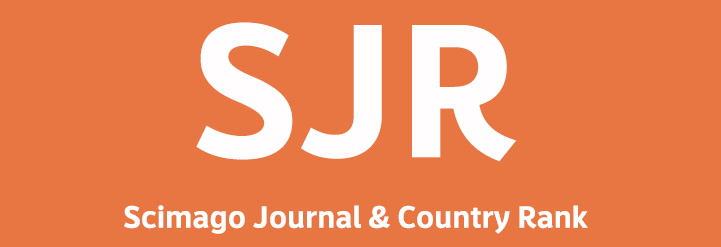Revised Zonal Subdivision Of The Late Miocene Nannoplankton Biostratigraphy For Kutei Basin
DOI:
https://doi.org/10.29017/SCOG.32.3.849Keywords:
biostratigraphy, nannoplankton, miocene, kutei basinAbstract
Lithological complexity and intense hydrocarbon exploration with the objective of Late Miocene sediments in Kutei Basin has provided the impetus for more refined Late Miocene nannoplankton zonation than the standard global schemes of Martini (1971). Investigation to the quantitative nannoplankton analysis results in Kutei Basin has been done, and there is evident that the deltaic sediments of this basin give an excellent nannoplankton assemblage dataset to refine the Late Miocene biostratigraphy. Biostratigraphically, Late Miocene ranges from the middle part of zone NN9 to the middle part of zone NN12 of Martini zonation (1971). Zone NN11 is the most crucial zone to be refined since this zone has long time interval (more than 2m.a.). In this paper, this zone can be subdivided into 7 subzones (NN11a-NN11g) based on relatively permanent occurrences of 6 biomarkers. They are from the base to the top, as follow: FO Discoaster quinqueramus, LO. Minilitha convalis, LO Discoaster bergenii, FO Amaurolithus primus, FO Reticulofenestra rotaria, LO, Discoaster berggrenii, LO. Reticulofenestra rotaria and LO Discoaster quinqueramus. In spite of zone NN9, NN10 and NN12 which have relatively short stratigraphic ranges, each zone can also be subdivided into 2 subzones. The base and the top of zone NN9 is indicated respectively by the FO and LO Discoaster hamatus. It can be subdivided by the FO Discoaster prepentaradiatus into subzone NN9a and NN9b. Zone NN10 is marked by the LO Discoaster hamatus at the base and FO Discoaster quinqueramus at the top. It can be subdivided into subzones NN10a and NN10b by the LO Discoaster bollii. Zone NN12 is characterized by the LO Discoaster quinqueramus at the base and the FO Ceratolithus rugosus at the top. This zone can be subdivided into subzone NN12a and NN12b by the LO Helicosphaera intermedia.
References
Allen, G.P. & Chambers, J.L.C., 1988. Sedimentation
in Modern Mahakam Delta. Indonesian Petroleum
Association, 253p.
Bown, P.R., 1999. Calcareous Nannoplankton Biostratigraphy.
Kluwer Academic Publishers.
Bukry, D. 1973b. Coccolith and Silicoflagellate
Stratigraphy, Deep Sea Drilling Project Leg 18,
Eastern North Pacific. Initial Rep. Deep Sea Drill.
Proj., 18, 817-31
Bukry, D. & Percival, S.F. 1971. New Tertiary Calcareous
Nannofossils. Tulane Stud.
Geol.Paleontology, 8, 123-46.
Gartner, S.Jr. 1969c. Correlation of Neogene Planktonic
Foraminifera and Calcareous Nannofossil
Zones. Trans. Gulf Coast Assoc. Geol. Soc., 19,
-99.
Gartner, S.Jr & Bukry, D. 1975. Morphology and
Philogeny of the Coccolithophycean family
Ceratoliyhaceae. J. Res. U. S.Geol. Surv., 3, 451-
Knuttel, S., Russel, M.D. and Firth, J.V. 1989. Neogene
Calcareous Nannofossils from Leg 105: Implication
for Pleistocene Paleoceanographic Trends.
Prooceding of the ODP Scientific Result, 105, 245-
Martini, E., 1971. Standard Tertiary and Quaternary
Calcareous Nannoplankton Zonation in
Farinacci, A. (Ed). Proc. 2nd Plank. Conf. Roma,
pp. 739-784. Edizioni Tecnoschienza, Roma.
Martini, E. & Bramlette, M.N. 1963. Calcareous
Nannoplankton from the Experimental Mohole Drilling.
J. Paleontology, 37, 845-56.
Okada, H. & Bukry, D. 1980. Supplementary
Modification and Introduction of Code Numbers
to the Low Latitude Coccolith Biostratigraphic Zonation
(Bukry, 1973; 1975). Marine Micropaleontology,
(3), 321-5.
Payne, S.N.J., Ewen, D.F. & Bowman, M.J. 1999.
The Role and Value of ‘High Impact Biostratigrafi’
in Reservoir Appraisal and Development. Geological
Society, Special Publication No. 152.
Perch-Nielsen, K. 1985, Cenozoic Calcareous
Nannofossils, in Bolli, H.M., Saunders, J. B. &
Perch-Nielsen, K. eds., Plankton Stratigraphy.
Cambridge University Press. Cambridge.
Theodoridis, S.A. 1984. Calcareous Nannofossil
Biozonation of The Miocene and Revision of the
Helicoliths and Discoasters. Utrecht Micropaleontological
Bulletins, 32, 1-271.
Downloads
Issue
Section
License
Copyright (c) 1970 SCIENTIFIC CONTRIBUTIONS OIL AND GAS (SCOG)

This work is licensed under a Creative Commons Attribution 4.0 International License.
Authors are free to Share — copy and redistribute the material in any medium or format for any purpose, even commercially Adapt — remix, transform, and build upon the material for any purpose, even commercially.
The licensor cannot revoke these freedoms as long as you follow the license terms, under the following terms Attribution — You must give appropriate credit , provide a link to the license, and indicate if changes were made . You may do so in any reasonable manner, but not in any way that suggests the licensor endorses you or your use.
No additional restrictions — You may not apply legal terms or technological measures that legally restrict others from doing anything the license permits.














